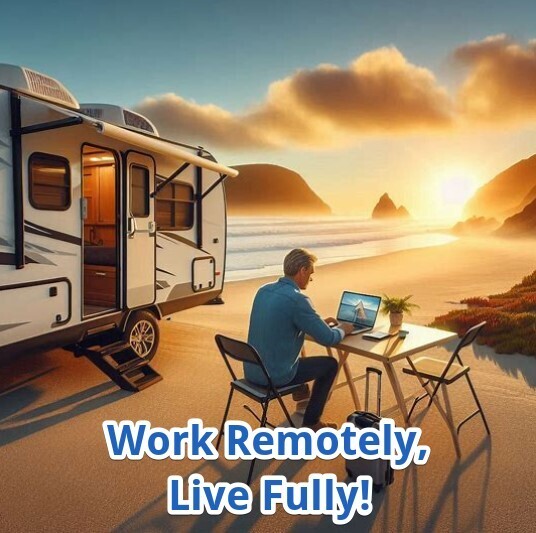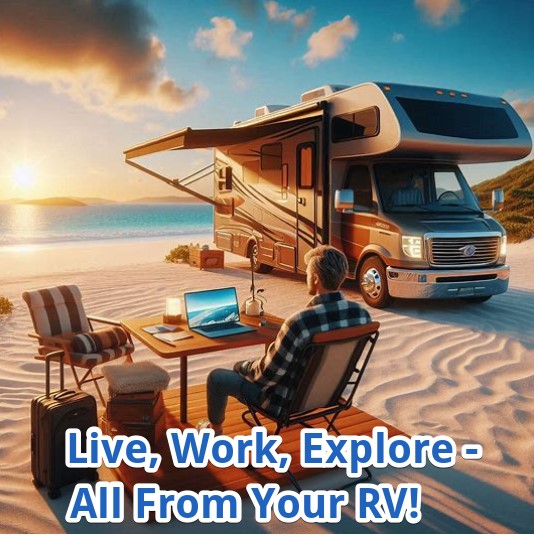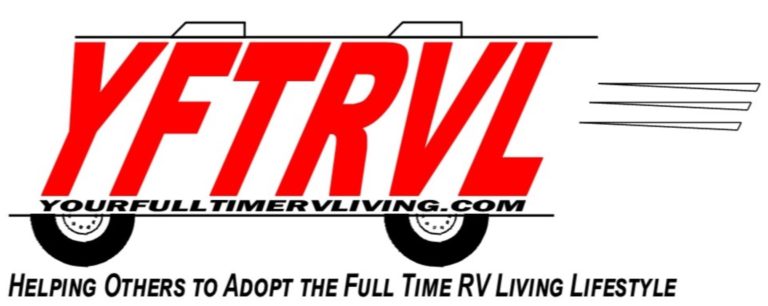Where Will Your Domicile Be?
Defining tax residency is a bit tricky when your home is on wheels, but it’s important to know. Tax residency means where you’re considered a resident for tax purposes. It affects how much you pay in taxes and where you owe them, so it’s worth getting right.
If you’re always on the move, figuring out where you belong for tax purposes can get confusing. The distinction between domicile and residency is crucial. Domicile is your true home, the place you intend to return to eventually, whereas residency is where you are actually living at any given time. For full-time RVers, domicile is where you have your driver’s license, vote, and maybe own property.
Choosing the right state to call your domicile can save you a lot of money. Some states, like Florida, Texas, and South Dakota, are popular among RVers because they don’t have a state income tax, making them very tax-friendly. It’s about balancing lifestyle preferences with tax advantages.
Maintaining your domicile and showing evidence you’re attached to one state more than others is key. Simple actions like getting a library card, banking locally, or joining local clubs can make a difference. Your goal is to show that you have a significant connection to your chosen state, even if your wheels are always turning.
Our Full Time RV Tax Experiences Since 2008
We started living in a full-time RV in 2008. At that time, we were in Florida and had Florida residency, so taxes were easy. We were living full time in our RV but only traveling around Florida at that point. So, Florida became our domicile state.
In 2010, we wanted to start traveling more, so the issue of receiving mail, handling taxes, and other issues became a concern. We discovered Passport America, a discount camping club, and its subsidiary, MyRVMail. That allowed us to receive mail to a Florida address and have any mail forwarded that needed to be. That works great! We are still using their services. So Florida remains our domicile state even though we travel and live in other states.
In 2014, we decided to launch another business, this time in the RV industry, focusing on RV consulting. This could have created a tax issue, but with Florida as our domicile state and all revenues flowing through our Florida corporation, there was mostly no issue traveling and creating income while doing so.
Our personal and corporate taxes all were filed as Florida residents even though we were traveling to other states.
Another aspect of our business was online affiliate marketing, which started in 2011 and developed in 2014. That aspect of our business has allowed us to share products and services that add value to the RV lifestyle. Do you want to do the same? Check out this website!
The great thing about operating a small business from an RV is that it creates deductions that can be used to reduce our tax burden. America is a great country for entrepreneurs!
Income Tax Implications
Handling different income sources while on the road keeps things interesting but requires some planning. Whether it’s remote work, investment income, or any side hustles you’ve got going on, understanding how these impact your taxes is crucial. Generally, income is taxed based on where you earn it, not where your RV happens to be parked.
State income tax can be a bit of a puzzle. If you’re domiciled in a state with no income tax, that’s a win. However, income you earn in a state that does have income tax may still be subject to that state’s taxes. States have different rules, so it’s smart to stay informed and maybe chat with a tax pro who knows the RV lifestyle.
Our CPA advised us that if we did one or two jobs in a state outside Florida, there would be no need to file a return in that state, tax state or not. However, if we stay in a tax state for months and earn income in that state, we should file a state tax return to avoid any issues.
Federal income tax filing is straightforward since it doesn’t matter where in the U.S. you are. Just keep tracking your income and expenses as you travel. Using apps for this can simplify things. When tax time comes around, filing electronically can save a headache.
For those with self-employment income, it’s a bit more involved. Self-employment taxes cover Social Security and Medicare contributions. Paying estimated taxes quarterly helps avoid surprises come tax season. Plus, you might be able to deduct some business expenses, reducing your overall tax burden.
Pam and I have been paying our quarterly taxes for years. HMRVI Corporation hired a CPA and tax attorney. We create our own spreadsheets and profit and loss statements for our CPA to approve and file quarterly for us. It’s a simple process!
Don’t be afraid to run a small business while enjoying full time RV living. It’s a great way to fund your travels and gain some tax advantages of being a business owner.
Deductions and Credits Specific to Full-Time RVers
Understanding potential deductions can really lighten your tax load. For full-time RVers, RV-related expenses can sometimes qualify as deductions. Your RV might be seen as a second home, opening up mortgage interest and property tax deductions similar to a traditional home. Check with a good CPA on this one!
Many RVers work remotely, and the home office deduction is a game changer for digital nomads. If you use part of your RV exclusively as an office, you might be eligible. It’s more common than you think; ensure you meet the IRS rules for exclusive and regular use. For example, a large fifth-wheel toy hauler where the back has been converted to an office, and that is its only use, might qualify for the home office deduction.
Travel-related deductions can add up. If you travel for business, those expenses can potentially be deductible. Tracking mileage and other travel-related costs is essential for claiming these deductions. It’s all about the details, so keeping meticulous records will pay off.
Eco-friendly moves like installing solar panels on your RV can also offer tax benefits. Federal solar tax credits might be available, lowering the cost of going green. It’s a win-win for your wallet and the environment. Just make sure to review the latest tax credit information, as these can change.
Record Keeping and Tax Filing Tips
Keeping essential documentation organized is vital. Save every receipt, invoice, and financial document related to your RV and business expenses. Physical copies work fine, but digital records can be more convenient and space-saving. Apps and tools designed for expense tracking can streamline this process, making sure you’re ready for tax season.
Leveraging technology helps keep things orderly. Cloud storage solutions like Google Drive or Dropbox allow access to important files from anywhere. Ideally, set up folders for different categories, like income, expenses, and vehicle-related documents. This way, everything’s in its place and easy to find when needed.
Finding a tax professional who gets the RV lifestyle makes a huge difference. Not every accountant understands the ins and outs of full-time RVing, so look for someone with experience in this area. They can offer tailored advice and ensure you’re making the most of the available deductions and credits.
Being mindful of important deadlines and filing extensions avoids penalties. Mark your calendar with key dates for quarterly estimated tax payments and annual filings. If you need extra time, applying for an extension is an option, but keep in mind it’s an extension to file, not to pay. Staying on top of these dates ensures smooth sailing through tax season.
To learn more about us you can visit this link.













Recent Comments